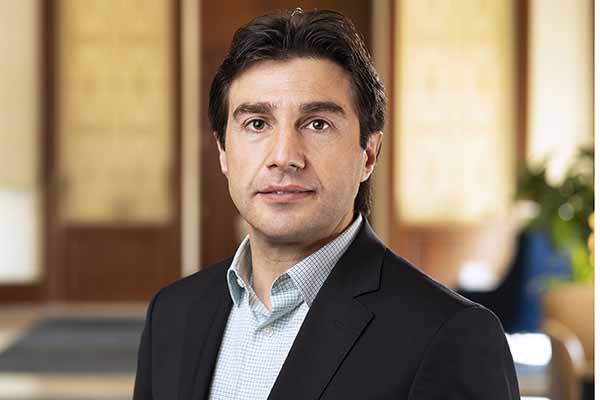Research Interests
macroeconomics, labor economics, income inequality, wealth inequality, labor earnings dynamicsSelected Work
“Income Differences and Health Disparities: Roles of Preventive vs. Curative Medicine”
Journal of Monetary Economics, March 2025, Vol. 150, 103698
Related working paper (PDF)
“Consumption Dynamics and Welfare under non-Gaussian Earnings Risk”
with Fatih Guvenen and Rocio Madera
Journal of Economic Dynamics and Control, Vol. 169, December 2024, 104945
Related working paper (PDF)
“Dissecting Idiosyncratic Earnings Risk”
with Elin Halvorsen, Hans Holter, and Kjetil Storesletten
Journal of the European Economic Association, April 2024
Related working paper (PDF)
“Anatomy of Lifetime Earnings Inequality: Heterogeneity in Job Ladder Risk vs Human Capital”
with Fatih Karahan and Jae Song
Journal of Political Economy Macroeconomics, 2023, Vol. 1, No. 3, pp. 506-550
Related working paper (PDF)
“Earnings Dynamics and Its Intergenerational Transmission: Evidence from Norway”
with Elin Halvorsen and Sergio Salgado
Quantitative Economics, November 2022, Vol. 13, No. 4, pp. 1707-1746
Related working paper (PDF)
“What Do Data on Millions of U.S. Workers Reveal About Lifecycle Earnings Dynamics?”
with Fatih Guvenen, Fatih Karahan, and Jae Song
Econometrica, September 2021, Vol. 89, No. 5, pp. 2303-2339
Related working paper (PDF)
“Heterogeneous Scarring Effects of Full-Year Nonemployment”
with Fatih Guvenen, Fatih Karahan, and Jae Song
American Economic Review: Papers and Proceedings, 2017, Vol. 107, No. 5, pp. 1-6
“Taxation of Human Capital and Wage Inequality: A Cross-Country Analysis”
with Fatih Guvenen and Burhan Kuruscu
Review of Economic Studies, 2014, Vol. 81, pp. 818-850
“The Nature of Countercyclical Income Risk”
with Fatih Guvenen and Jae Song
Journal of Political Economy, 2014, Vol. 122, No. 3, pp. 621-660
“On the Persistence of Income Shocks over the Life Cycle: Evidence and Implications”
with Fatih Karahan
Review of Economic Dynamics, 2013, Vol. 16, No. 3, pp. 452-476
“Is AI Contributing to Rising Unemployment? Evidence from Occupational Variation”
with Nicholas Sullivan
On the Economy, August 26, 2025
“Recent College Grads Bear Brunt of Labor Market Shifts”
with Nicholas Sullivan
On the Economy, August 25, 2025
“Why U.S. House Prices Stayed Resilient While Prices Fell in Other Countries”
On the Economy, August 7, 2025
“AI Hype or Reality? Shifts in Corporate Investment after ChatGPT”
with Aakash Kalyani, Mickenzie Bass, and Mick Dueholm
On the Economy, October 3, 2024
“Does Worker Scarcity Spur Investment, Automation and Productivity? Evidence from Earnings Calls”
with Mick Dueholm and Aakash Kalyani
On the Economy, June 20, 2024
“Can Earnings Calls Be Used to Gauge Labor Market Tightness?”
with Mick Dueholm and Aakash Kalyani
On the Economy, June 18, 2024
“Silver Spoon or Self-Made? Exploring 23 Years of Wealth Mobility”
On the Economy, December 14, 2023
“Unlike Others, the Top Earners See Strong Pay Growth Beyond Age 35”
On the Economy, October 16, 2023
“Where Do the Wealthiest Get Their Wealth?”
Federal Reserve Bank of St. Louis Regional Economist, May 08, 2023
“How Job Risk and Human Capital Shape Male Lifetime Earnings Disparities”
with Cassandra Marks
On the Economy, January 19, 2023
“Theory Meets Textual Analysis: Measuring Firm-Level Labor Cost Pressures and Inflation Pass-Through” (PDF)
with Aakash Kalyani
Federal Reserve Bank of St. Louis Working Paper 2025-021A, July 2025
“Mortgage Market Structure and the Transmission of Monetary Policy During the Great Inflation” (PDF)
with Aaron Hedlund, Kieran Larkin, and Kurt Mitman
Federal Reserve Bank of St. Louis Working Paper 2025-016A, July 2025
“Scalable versus Productive Technologies” (PDF)
with Mons Chan, Guangbin Hong, Joachim Hubmer, and Sergio Salgado
Federal Reserve Bank of St. Louis Working Paper 2024-019D, May 2025
“Why Are the Wealthiest So Wealthy? New Longitudinal Empirical Evidence and Implications for Theories of Wealth Inequality” (PDF)
with Elin Halvorsen, Joachim Hubmer, and Sergio Salgado
Federal Reserve Bank of St. Louis Working Paper 2024-013A, June 2024
Supplemental material (PDF)
“Why Are the Wealthiest So Wealthy? A Longitudinal Empirical Investigation” (PDF)
with Elin Halvorsen, Joachim Hubmer, and Sergio Salgado
Federal Reserve Bank of St. Louis Working Paper 2023-004C, March 2023
Serdar Ozkan is an economic policy advisor in the Research division of the Federal Reserve Bank of St. Louis, which he joined in August 2021. His research agenda aims to understand the determinants and consequences of inequality by focusing on the nature of household and firm heterogeneity and their roles in economic outcomes. In his research, Ozkan uses big data and employs machine learning techniques. He earned his Ph.D. in economics from the University of Pennsylvania in 2011.
Ozkan is a leading expert in economic analysis and policy implications, and his papers have been published in Econometrica, Journal of Political Economy, Review of Economic Studies, Journal of European Economic Association, and Quantitative Economics, among others. Ozkan holds a status-only associate professor position at the University of Toronto's department of economics. He also held full-time or visiting positions at the Federal Reserve Board, Federal Reserve Bank of Minneapolis, and Stanford University before joining the St. Louis Fed. He is an associate editor for Macroeconomic Dynamics and a CESifo Research Network Member.
He has received numerous awards and grants for his research, including a Marie Skłodowska-Curie Fellowship from the European Union and multiple grants from the Social Sciences and Humanities Research Council of Canada. He is actively involved in mentoring the next generation of economists, supervising Ph.D. students and teaching graduate-level courses in macroeconomics. Ozkan is frequently invited to present his research at top universities and central banks worldwide, to contribute to economic policy discussions and academic research alike. His work has been covered by major media outlets including New York Times, Forbes, Insider, Bloomberg, and CNN.


